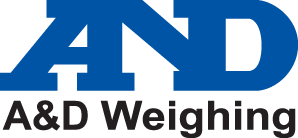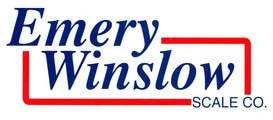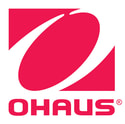Adams Equipment Scale Calibration Services
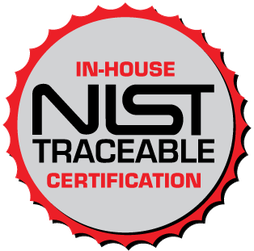
Below is an sample of a weight scale calibration procedure for scales. It is an example only. Use the scale's manual to determine the accuracy of the scale. You select which calibrated weights to use. These weights must be traceable to NIST. It is important to your Quality Assurance system that you have a calibration procedure in place for each measuring instrument.
Calibration & Certification
Koehler Scale, Inc., factory trained technicians are equipped to provide full scale calibration services on all your weighing and measurement equipment ranging from analytical balances to heavy capacity industrial platform scales with capacities from 1g 100 tons. Scale calibrations and certifications are performed to NIST Handbook 44 specs unless otherwise requested.
Serving Chicagoland, Northern Illinois, and Southeast Wisconsin for over 45 years Koehler Scale, Inc. can develop a calibration program designed to meet your requirements. Call us for a free consultation.
Calibration & Certification
Koehler Scale, Inc., factory trained technicians are equipped to provide full scale calibration services on all your weighing and measurement equipment ranging from analytical balances to heavy capacity industrial platform scales with capacities from 1g 100 tons. Scale calibrations and certifications are performed to NIST Handbook 44 specs unless otherwise requested.
Serving Chicagoland, Northern Illinois, and Southeast Wisconsin for over 45 years Koehler Scale, Inc. can develop a calibration program designed to meet your requirements. Call us for a free consultation.
Adams Equipment Calibration Services Reservation
AQV - Absolute Quality Verification Preventative Maintenance Agreement This program provides services which are essential in reducing annual maintenance costs, improving reliability, extending the life of your equipment, meeting ISO requirements and most importantly, insuring accuracy for your customers. Protect your scale investment with an AQV plan:
|
|
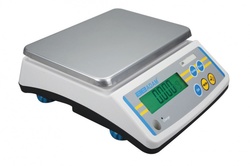
Adam Equipment has been certified as complying with ISO 9001:2008 requirements. ISO 9001:2008 is the latest in a series of management standards that specifies which parts of the management of a company need to be controlled, documented and regularly reviewed. It includes the checking and verifying of the raw materials and services that the company offers, the purchasing of products, employee training, customer satisfaction and how complaints and mistakes are dealt with, including preventative actions to be taken.
By using the ISO 9001:2008 standard, Adam Equipment ensures it is working to meet the requirements of its customers and is constantly working toward improving the way we do this.
By using the ISO 9001:2008 standard, Adam Equipment ensures it is working to meet the requirements of its customers and is constantly working toward improving the way we do this.
Regulations:
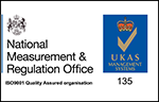
In order to use scales and balances in an "approved" manner, that is for trade purposes and certain other commercial transactions where the approval of a scale or balance is a legal requirement, it is necessary to demonstrate the scales or balance meets certain standards.
In the USA this is done through the NTEP approval process. In Europe and many other countries it is done by showing compliance with OIML Recommendation 76 (R76).
In the USA this is done through the NTEP approval process. In Europe and many other countries it is done by showing compliance with OIML Recommendation 76 (R76).

NTEP
NTEP is the National Type Evaluation Program. NTEP oversees the testing of weighing equipment by government laboratories within the USA. The NTEP approval is recognised with the USA and some other countries. The basic requirements are given in Handbook 44.
Through 12 participating laboratories, NTEP examines the design, features, operating characteristics and performance of weighing and measuring devices to ensure compliance with national requirements. Essentially, it provides a central evaluation process that satisfies the requirements for rollout of measuring devices in all fifty states. In addition, NTEP acts as a clearinghouse for enforcement practices, using the expertise and input from both regulatory and industry representatives to develop consensus on appropriate standards and procedures.
NTEP is the National Type Evaluation Program. NTEP oversees the testing of weighing equipment by government laboratories within the USA. The NTEP approval is recognised with the USA and some other countries. The basic requirements are given in Handbook 44.
Through 12 participating laboratories, NTEP examines the design, features, operating characteristics and performance of weighing and measuring devices to ensure compliance with national requirements. Essentially, it provides a central evaluation process that satisfies the requirements for rollout of measuring devices in all fifty states. In addition, NTEP acts as a clearinghouse for enforcement practices, using the expertise and input from both regulatory and industry representatives to develop consensus on appropriate standards and procedures.

OIML
The International Organisation of Legal Metrology was created to promote the global harmonisation of legal metrology procedures. The members of OIML are countries throughout the world that use the OIML Recommendations for the creation of National Standards for Metrology. Within the European Union the European standard EN45501 is based upon the OIML R76 for Non-Automatic Weighing Equipment.
When a scale or balance is approved it has been tested by an approved Standards Laboratory to meet the published standards. These standards cover the metrology of the weighing equipment, operation, standards of construction, security, labelling and testing of Electromagnetic characteristics. The scales will have labels identifying conformance, be fitted with methods to seal the calibration if required and be issued with a Certificate of Conformity.
EC Type Approval
EC Type Approval can be granted to all electronic and most mechanical non-automatic weighing instruments (NAWI). The instrument has to meet the essential requirements contained in the EC Directive 90/384/EEC as amended, and implemented into UK Law under the 1995 Regulations (SI 1995 No. 1907). The most common route for ensuring the essential requirements of the Directive are met is through the European Standard for NAWIs, BS EN 45501.
EC Type Approval is demonstrated by meeting the requirements of BS EN 45501. As BS EN 45501 is equivalent to OIML R76, it is common that the test laboratory applies for the OIML certificate based upon the test results.
The International Organisation of Legal Metrology was created to promote the global harmonisation of legal metrology procedures. The members of OIML are countries throughout the world that use the OIML Recommendations for the creation of National Standards for Metrology. Within the European Union the European standard EN45501 is based upon the OIML R76 for Non-Automatic Weighing Equipment.
When a scale or balance is approved it has been tested by an approved Standards Laboratory to meet the published standards. These standards cover the metrology of the weighing equipment, operation, standards of construction, security, labelling and testing of Electromagnetic characteristics. The scales will have labels identifying conformance, be fitted with methods to seal the calibration if required and be issued with a Certificate of Conformity.
EC Type Approval
EC Type Approval can be granted to all electronic and most mechanical non-automatic weighing instruments (NAWI). The instrument has to meet the essential requirements contained in the EC Directive 90/384/EEC as amended, and implemented into UK Law under the 1995 Regulations (SI 1995 No. 1907). The most common route for ensuring the essential requirements of the Directive are met is through the European Standard for NAWIs, BS EN 45501.
EC Type Approval is demonstrated by meeting the requirements of BS EN 45501. As BS EN 45501 is equivalent to OIML R76, it is common that the test laboratory applies for the OIML certificate based upon the test results.




